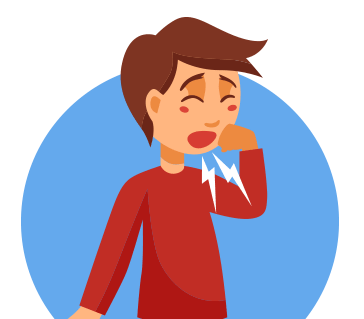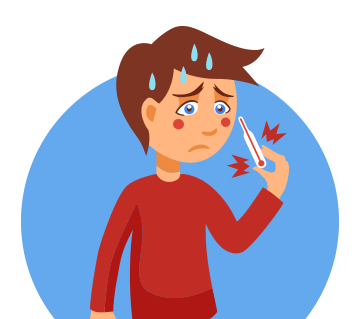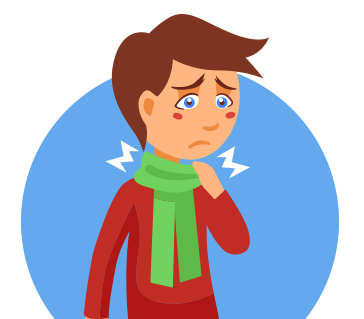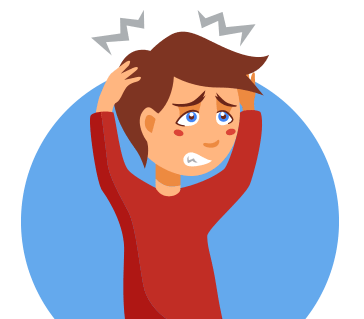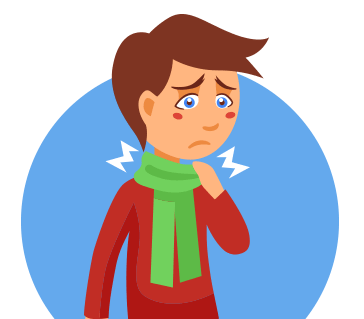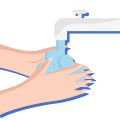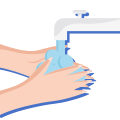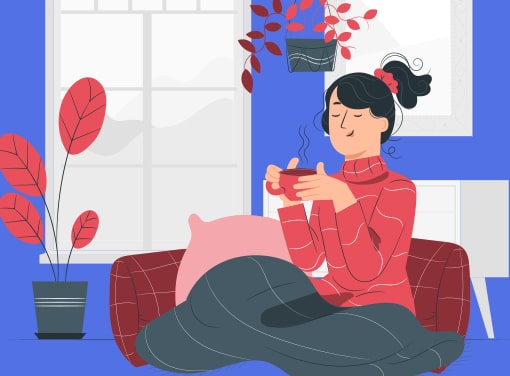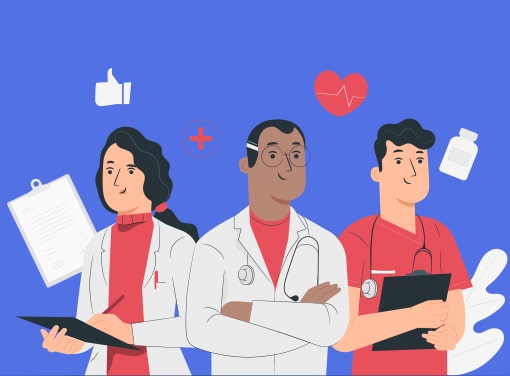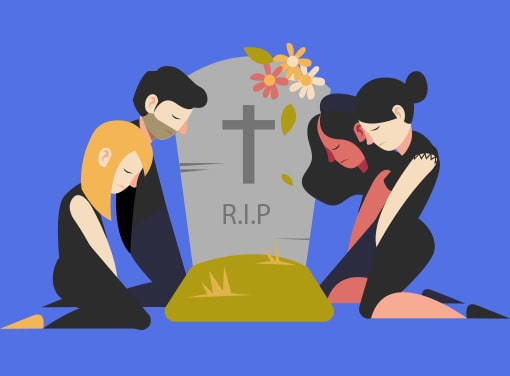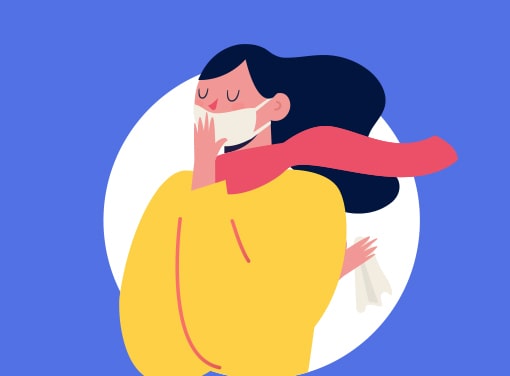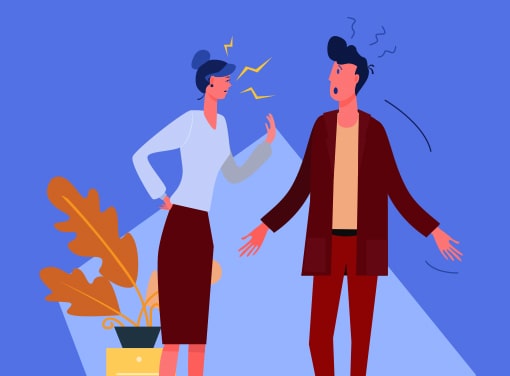About the disease
COVID-19 is a new illness that can affect your lungs and airways. It's caused by a virus called coronavirus. It was discovered in December 2019 in Wuhan, Hubei, China.
Most people infected with the COVID-19 virus will experience mild to moderate respiratory illness and recover without requiring special treatment. Older people, and those with underlying medical problems like cardiovascular disease, diabetes, chronic respiratory disease, and cancer are more likely to develop serious illness.
The best way to prevent and slow down transmission is be well informed about the COVID-19 virus, the disease it causes and how it spreads. Protect yourself and others from infection by washing your hands or using an alcohol based rub frequently and not touching your face.
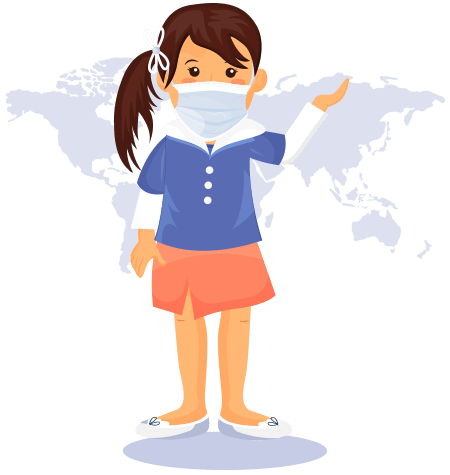
Symptoms of Coronavirus
-
Cough
It's important to remember, however, that dry coughs can be a symptom of a variety of other illnesses—not just COVID-19—including, allergies, asthma, bronchitis, or a typical common cold, according to the American College of Allergy, Asthma, and Immunology. However, Dr. Das explains that if you have any other symptoms related to COVID-19, like a fever, unexplained loss of taste or smell, or gastrointestinal issues like diarrhea, you should call your doctor to inquire about getting tested for coronavirus.
Read More -
Fever
fever is an elevation in body temperature or a high body temperature. Technically, any body temperature above the normal oral measurement of 98.6 degrees Fahrenheit (37 Celsius) or the normal rectal temperature of 99 F (37.2 C) is considered elevated. However, these are averages, and one's normal body temperature may actually be 1 F (0.6 C) or more above or below the average of 98.6 F. Body temperature can also vary up to 1 F (0.6 C) throughout the day.
Read More -
Shortness of breath
Shortness of breath — known medically as dyspnea — is often described as an intense tightening in the chest, air hunger, difficulty breathing, breathlessness or a feeling of suffocation. Very strenuous exercise, extreme temperatures, obesity and higher altitude all can cause shortness of breath in a healthy person.
Seek emergency medical care if your shortness of breath is accompanied by chest pain, fainting, nausea, a bluish tinge to lips or nails, or a change in mental alertness — as these may be signs of a heart attack or pulmonary embolism.
Read More -
Headache
Here are some warning signs for when you should worry about headaches: Headaches that first develop after age 50. ... Headaches that are accompanied by fever, stiff neck, confusion, decreased alertness or memory, or neurological symptoms such as visual disturbances, slurred speech, weakness, numbness, or seizures.
Tension headaches are dull pain, tightness, or pressure around your forehead or the back of your head and neck. Some people say it feels like a clamp squeezing the skull. Often called stress headaches, they're the most common type for adults.
Read More -
Sore throat
The most common causes of sore throats are viruses. Viral sore throats are often accompanied by other cold symptoms that may include a runny nose, cough, red or watery eyes, and sneezing. Other causes of sore throat include smoking, pollution or irritants in the air, allergies, and dry air.
Sore throats, also known as pharyngitis, can be acute, lasting only a few days, or chronic, lingering on until their underlying cause is addressed. Most sore throats are the result of common viruses and resolve on their own within 3 to 10 days. Sore throats caused by a bacterial infection or allergies may last longer.
Read More
Covid-19 protection
Regularly and thoroughly clean your hands with an alcohol-based hand rub or wash them with soap and water. Why? Washing your hands with soap and water or using alcohol-based hand rub kills viruses that may be on your hands
Maintain at least 1 metre (3 feet) distance between ourself and anyone who is coughing or sneezing. Why? When someone coughs or sneezes they spray small liquid droplets from their nose or mouth which may contain virus. If you are too close, you can breathe in the droplets, including the COVID-19 virus if the person coughing has the disease.
Why? Hands touch many surfaces and can pick up viruses. Once contaminated, hands can transfer the virus to your eyes, nose or mouth. From there, the virus can enter your body and can make you sick.
Make sure you, and the people around you, follow good respiratory hygiene. This means covering your mouth and nose with your bent elbow or tissue when you cough or sneeze. Then dispose of the used tissue immediately Why? Droplets spread virus. By following good respiratory hygiene you protect the people around you from viruses such as cold, flu and COVID-19.
Stay home if you feel unwell. If you have a fever, cough and difficulty breathing, seek medical attention and call in advance. Follow the directions of your local health authority. Why? National and local authorities will have the most up to date information on the situation in your area. Calling in advance will allow your health care provider to quickly direct you to the right health facility. This will also protect you and help prevent spread of viruses and other infections.
Stay informed on the latest developments about COVID-19. Follow advice given by your healthcare provider, your national and local public health authority or your employer on how to protect yourself and others from COVID-19. Why? National and local authorities will have the most up to date information on whether COVID-19 is spreading in your area. They are best placed to advise on what people in your area should be doing to protect themselves.
Follow steps to wash hands
Get advice for experts
To date, there is no vaccine and no specific antiviral medicine to prevent or treat COVID-2019. However, those affected should receive care to relieve symptoms. People with serious illness should be hospitalized. Most patients recover thanks to supportive care.
-
150-A Appolo aprtment, opp. Hopewell Junction,
Allen st Road, new york-405001. -
(0556) 501-889-322
(0665) 577-133-00 -
infoservices@example.com







